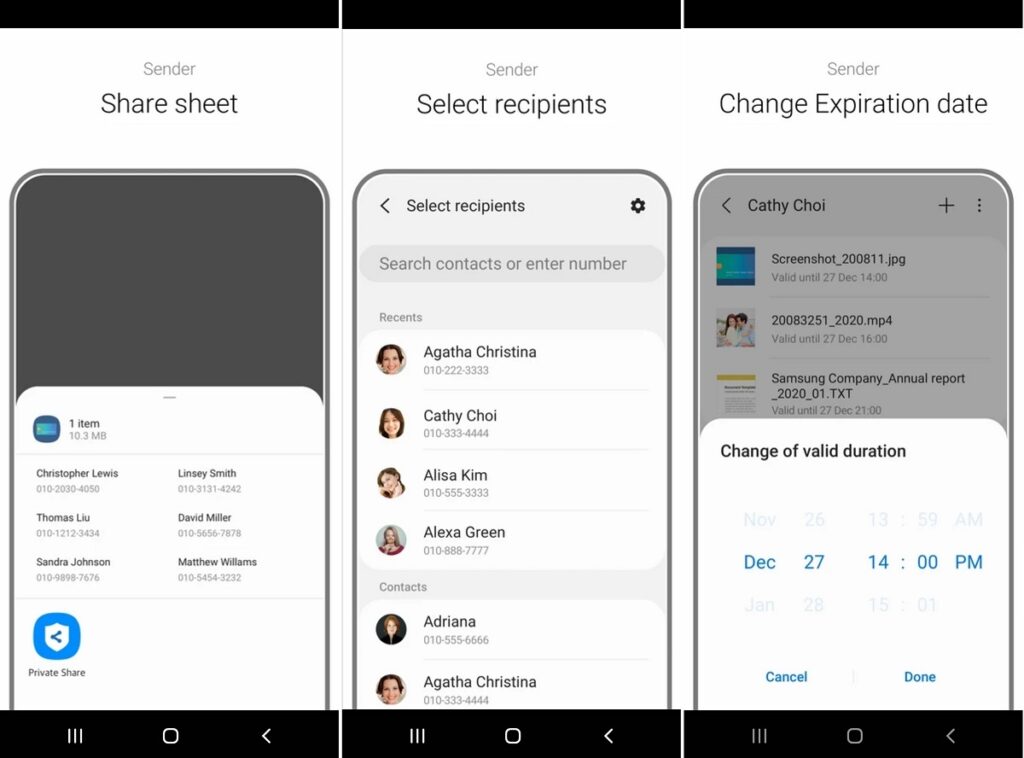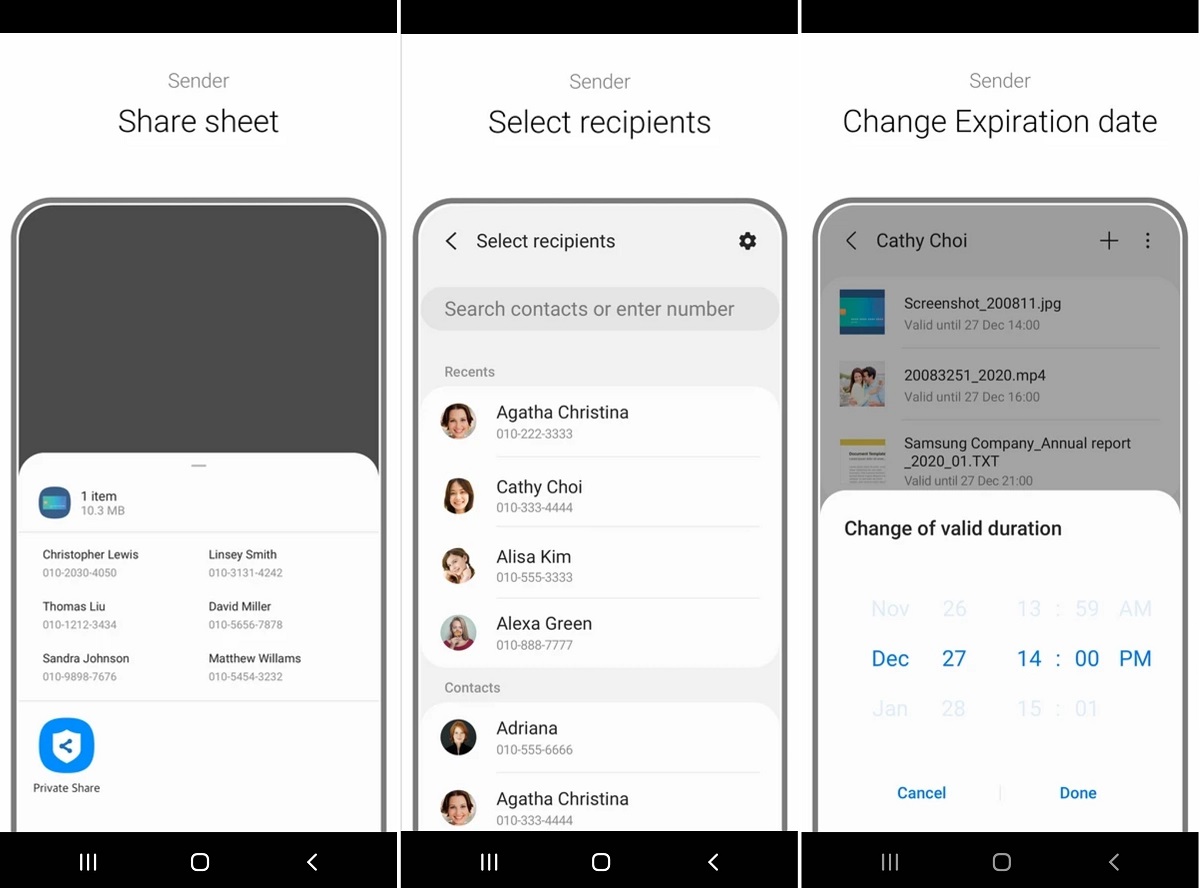
Secure and Simple: Choosing the Right Private Share App for Your Needs
In today’s digital age, the need to share files and information securely and privately is more critical than ever. Whether it’s sensitive business documents, personal photos, or confidential client data, ensuring that your shared information remains protected is paramount. This is where a reliable private share app becomes essential. But with a plethora of options available, how do you choose the right one? This article will explore the key features, benefits, and considerations when selecting a private share app that meets your specific needs.
Understanding the Need for Private Sharing
The traditional methods of file sharing, such as email or cloud storage services, often lack the necessary security measures to protect sensitive data. Email attachments can be intercepted, and cloud storage accounts can be vulnerable to hacking. A private share app offers a more secure alternative by encrypting data, controlling access, and providing audit trails. This ensures that only authorized individuals can access the shared information, and any unauthorized attempts are detected.
Furthermore, a private share app often provides more granular control over sharing permissions. You can specify who can view, download, edit, or forward the shared files. This level of control is crucial for maintaining data integrity and preventing unauthorized dissemination of information. For businesses, using a private share app demonstrates a commitment to data security and compliance with privacy regulations.
Key Features to Look for in a Private Share App
When evaluating private share apps, consider the following key features:
End-to-End Encryption
End-to-end encryption ensures that data is encrypted on the sender’s device and decrypted only on the recipient’s device. This prevents anyone, including the app provider, from accessing the content of the shared files. Look for apps that use robust encryption algorithms, such as AES-256, to protect your data.
Access Control and Permissions
A good private share app should allow you to define granular access permissions for each shared file or folder. This includes the ability to specify who can view, download, edit, or forward the content. You should also be able to revoke access permissions at any time.
Two-Factor Authentication
Two-factor authentication (2FA) adds an extra layer of security by requiring users to provide two forms of identification before accessing their accounts. This can be a password and a code sent to their mobile device, making it more difficult for unauthorized individuals to gain access.
Self-Destructing Messages
Some private share apps offer the option to send self-destructing messages or files. This means that the content will automatically be deleted after a specified period, further reducing the risk of unauthorized access. This is especially useful for sharing highly sensitive information that only needs to be accessed for a short time.
Audit Trails and Logging
A private share app should provide audit trails and logging capabilities, allowing you to track who accessed the shared files, when they accessed them, and what actions they performed. This information can be valuable for investigating security breaches or ensuring compliance with regulations.
Device Compatibility
Ensure that the private share app is compatible with your devices and operating systems. A good app should be available on multiple platforms, including iOS, Android, Windows, and macOS. This allows you to share files seamlessly across different devices.
Popular Private Share Apps on the Market
Several private share apps are available on the market, each with its own strengths and weaknesses. Here are a few popular options:
- Signal: Known for its strong encryption and privacy features, Signal is a popular choice for secure messaging and file sharing.
- Telegram: While Telegram offers end-to-end encryption for secret chats, it’s important to note that this feature is not enabled by default.
- Wickr: Wickr is a private share app designed for secure communication and file sharing, offering features such as end-to-end encryption, self-destructing messages, and secure deletion.
- Tresorit: Tresorit is a secure cloud storage and file sharing service that uses end-to-end encryption to protect your data. It’s a good option for businesses that need to share sensitive documents with clients and partners.
- ProtonMail: While primarily an email service, ProtonMail also offers secure file sharing capabilities with end-to-end encryption.
Benefits of Using a Private Share App
Using a private share app offers several significant benefits:
- Enhanced Security: Protect your sensitive data from unauthorized access and breaches.
- Improved Privacy: Maintain control over who can access your shared information.
- Compliance with Regulations: Meet data security and privacy requirements, such as GDPR and HIPAA.
- Increased Productivity: Share files quickly and easily without compromising security.
- Peace of Mind: Knowing that your data is secure and protected.
Use Cases for Private Share Apps
Private share apps are useful in a variety of scenarios:
- Business: Sharing confidential documents, financial data, and intellectual property with employees, clients, and partners.
- Healthcare: Sharing patient records and medical information securely with healthcare providers.
- Legal: Sharing legal documents and sensitive client information with attorneys and paralegals.
- Personal: Sharing personal photos, videos, and documents with family and friends securely.
- Journalism: Sharing sensitive information with sources and protecting journalistic integrity.
How to Choose the Right Private Share App
Choosing the right private share app depends on your specific needs and requirements. Consider the following factors:
- Security Features: Prioritize apps with end-to-end encryption, two-factor authentication, and granular access controls.
- Ease of Use: Choose an app that is user-friendly and easy to navigate.
- Compatibility: Ensure that the app is compatible with your devices and operating systems.
- Pricing: Consider the pricing plans and features offered by different apps.
- Reputation: Research the reputation of the app provider and read reviews from other users.
Implementing a Private Share App in Your Organization
If you’re implementing a private share app in your organization, consider the following steps:
- Assess Your Needs: Determine your specific security and privacy requirements.
- Evaluate Different Apps: Compare the features, pricing, and reputation of different apps.
- Conduct a Pilot Program: Test the app with a small group of users before rolling it out to the entire organization.
- Provide Training: Train your employees on how to use the app securely and effectively.
- Establish Policies and Procedures: Develop clear policies and procedures for using the app.
- Monitor Usage: Monitor usage of the app to ensure compliance with policies and procedures.
The Future of Private Sharing
As data security and privacy concerns continue to grow, the demand for private share apps is expected to increase. Future trends in this area include:
- Increased Use of Encryption: More apps will adopt end-to-end encryption to protect user data.
- Advanced Access Controls: Apps will offer more granular control over sharing permissions.
- Integration with Other Services: Private share apps will integrate with other productivity and collaboration tools.
- AI-Powered Security: Artificial intelligence will be used to detect and prevent security threats.
- Decentralized Sharing: Blockchain technology may be used to create decentralized private share app platforms.
Conclusion
Choosing the right private share app is crucial for protecting your sensitive data and maintaining your privacy. By considering the key features, benefits, and considerations outlined in this article, you can make an informed decision and select an app that meets your specific needs. Whether you’re a business, healthcare provider, legal professional, or individual, a private share app can provide you with the security and peace of mind you need in today’s digital world. Remember to prioritize security, ease of use, and compatibility when evaluating different options. With the right private share app, you can share files and information securely and confidently.
[See also: Secure File Transfer Protocols: A Comprehensive Guide]
[See also: Data Encryption Methods: Choosing the Right One for Your Business]

